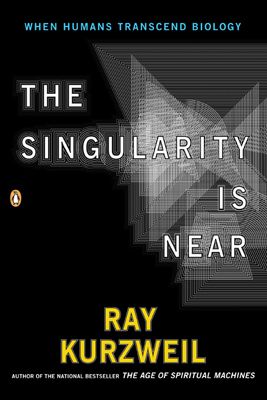The Nature of Identity Part 3
(Drawings not reproduced here — contact the author for copies)
We have seen how the identity is defined by the 0,0 point – the centroid or locus of perception.
The main problem we have is finding out how neural signals translate into sensory signals – how neural information is translated into the language we understand – that of perception. How does one neural pattern become Red and another the Scent of coffee. Neurons do not emit any color nor any scent.
As in physics, so in cognitive science, some long cherished theories and explanations are having to change.
Perception, and the concept of an Observer (the 0,0 point), are intimately related to the idea of Identity.
Many years ago I was a member of what was called the Artorga Research Group – a group including some of the early cyberneticists – who were focussed on Artificial Organisms.
One of the main areas of concern was, of course, Memory.
One of our group was a young German engineer who suggested that perhaps memories were in fact re-synthesised in accordance with remembered rules, as opposed to storing huge amounts of data.
Since then similar ideas have arisen in such areas as computer graphics.
Here is an example,
It shows a simple picture on a computer screen. We want to store (memorize) this information.
One way is to store the information about each pixel on the screen – is it white or is it black. With a typical screen resolution that could mean over 2.5 million bits of information
But there is another way….
In this process one simply specifies the start point (A) in terms of its co-ordinates (300 Vertically, 100 Horizontally); and its end point (B) (600 Vertically, 800 Horizontally); and simply instructs – “Draw a line of thickness w between them”.
The whole picture is specified in just a few bits..
The first method, specifying bit by bit, known as the Bit Mapped Protocol (.BMP), uses up lots of memory space.
The other method, based on re-synthesising according to stored instructions, is used in some data reduction formats; and is, essentially, just what that young engineer suggested, many years before.
On your computer you will have a screen saver –almost certainly a colorful scene – and of course that is stored, so that if you are away from the computer for a time it can automatically come on to replace what was showing, and in this way “save” your screen.
So – where are those colors in your screensaver stored, where are the shapes shown in it stored? Is there in the computer a Color Storage Place? Is there a Shape Storage Place?
Of course not.
Yet these are the sort of old, sodden concepts that are sometimes still applied in thinking about the brain and memories.
Patterned streams of binary bits, not unlike neural signals , (but about 70 times larger), are fed to a computer screen. And then the screen takes these patterns of bits as instructions to re-synthesise glowing colors and shapes.
We cannot actually perceive the binary signals, and so they are translated by the screen into a language that we can understand. The screen is a translator – that is its sole function.
This is exactly analogous to the point made earlier about perception and neural signals.
The main point here, though, is that what is stored in the computer memory are not colors and shapes but instructions.
And inherent in these instructions as a whole, there must exist a “map”.
Each instruction must not only tell its bit of the screen what color to glow – but it must also specify the co-ordinates of that bit. If the picture is the head of a black panther with green eyes, we don’t want to see a green head and black eyes. The map has to be right. It is important.
Looking at it in another way the map can be seen as a connectivity table – specifying what goes where. Just two different ways of describing the same thing.
As well as simple perception there are derivatives of what has been perceived that have to be taken into account, for example, the factor called movement.
Movement is not in itself perceptible (as we shall presently show); it is a computation.
Take for example, the following two pictures shown side-by-side.
I would like to suggest that one of these balls is moving. And to ask — which one is moving?
If movement had a visual attribute then one could see which one it was – but movement has no visual attributes – it is a computation.
To determine the speed of something, one has to observe its current position, compare that with the record (memory) of its previous position; check the clock to determine the interval between the two observations; and then divide the distance between the two positions, s; by the elapsed time, t; to determine the speed, v,
s/t = v.
This process is carried out automatically, (subconsciously), in more elaborate organisms by having two eyes spaced apart by a known distance and having light receptors – the retina – where each has a fast turn-on and a slow (about 40 ms) turn off, all followed by a bit of straightforward neural circuitry.
Because of this system, one can look at a TV screen and see someone in a position A, near the left hand edge, and then very rapidly, a series of other still pictures in which the person is seen being closer and closer to B, at the right hand edge.
If the stills are shown fast enough – more than 25 a second — then we will see the person walking across the screen from left to right. What you see is movement – except you don’t actually see anything extra on the screen. Being aware of movement as an aid to survival is very old in evolutionary terms. Even the incredibly old fish, the coelacanth, has two eyes.
The information provided is a derivate of the information provided by the receptors.
And now we ought to look at information in a more mathematical way – as in the concept of Information Space (I-space).
For those who are familiar with the term, it is a Hilbert Space.
Information Space is not “real” space – it is not distance space – it is not measurable in metres and centimetres.
As an example, consider Temperature Space. Take the temperature of the air going in to an air-conditioning (a/c) system; the temperature of the air coming out of the a/c system; and the temperature of the room. These three provide the three dimensions of a Temperature Space. Every point in that space correlates to an outside air temperature, an a/c output temperature and the temperature of the room. No distances are involved – just temperatures.
This is an illustration of what it would look like if we re-mapped it into a drawing.
The drawing shows the concept of a 3-dimensional Temperature Space (T-space). The darkly outlined loop is shown here as a way of indicating the “mapping” of a part of T-space.
But what we are interested in here is I-space. And I-space will have many more dimensions than T-space.
In I-space each location is a different item of information, and the fundamental rule of I-space – indeed of any Hilbert space – is,
Similarity equals Proximity.
This would mean that the region concerned with Taste, for example, would be close to the area concerned with Smell, since the two are closely related.
Pale Red would be closer to Medium Red than to Dark Red.
Perception then would be a matter of connectivity.
An interconnected group we could refer to as a Composition or Feature.
Connect 4 & legs & fur & tail & bark & the word dog & the sound of the word dog – and we have a familiar feature.
Features are patterns of interconnections; and it is these features that determine what a thing or person is seen as. What they are seen as is taken as their identity. It is the identity as seen from outside.
To oneself one is here and now, a 0,0 reference point. To someone else one is not the 0,0 point – one is there — not here, and to that person it is they who are the 0,0 point.
This 0,0 or reference point is crucially important. One could upload a huge mass of data, but if there was no 0,0 point that is all it would be – a huge mass of data.
The way forward towards this evolutionary goal, is not to concentrate on being able to upload more and more data, faster and faster – but instead to concentrate on being able to identify the 0.0 point; and to be able to translate from neural code to the language of perception.

